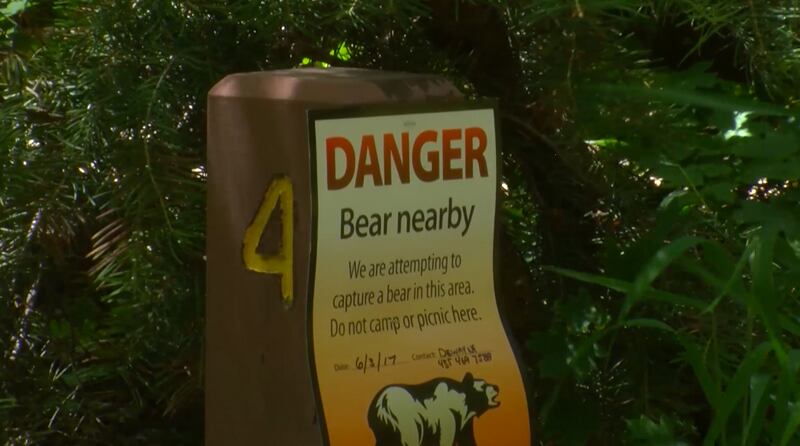SALT LAKE CITY — Last fall, wildlife officials reported 53 incidents involving black bears statewide, which was almost double the number of encounters over the previous year.
And Darren DeBloois, game mammals coordinator with the Utah Division of Wildlife Resources, said officials are anticipating another summer with a lot of bear activity.
But there are steps people can take to decrease the chances of coming face to face with a bear in a campsite or backyard.
Bear-proof food and supplies: When camping, store food, snacks, and scented items like deodorant and toothpaste where a bear can’t get to them, such as a locked trailer or vehicle. Doing so will reduce the chance a bear smells them. And, if a bear does make its way into a campsite, if it isn’t rewarded with food, it will likely move on.
Keep cooking areas clean: Thoroughly clean utensils and anything else that was used to prepare or eat food. Don’t dump oil or grease from pots or pans onto the ground. Instead, put the oil or grease in a container, and take it home. Keeping campsites clean reduces the chance that a bear will smell food or trash and be lured into the camp.
Keep campsites clean: Don’t leave food scraps and other trash scattered around. Instead, put it in trash bags, and take it home. Make sure to wipe down picnic tables and keep the area free of food and other debris. A dirty campsite can attract bears long after campers have left.
“If a bear visits the area after you leave and then someone comes into that area to camp, you’ve created a potentially dangerous situation,” DeBloois said.
Never feed a bear: Once a bear loses its fear of people, wildlife biologists and conservation officers are left with something they dread: having to euthanize an animal to keep people safe. By not providing a bear with food, you can help keep it safe too.
Bear-proof outdoor garbage cans: Many encounters involve bears getting into trash cans or dumpsters. Store trash in a secure location or bear-proof container. Store garbage cans in the garage and put them out for pickup in the morning, rather than the night before. Also, make sure to clean trash containers regularly to eliminate some of the odors that attract bears.
Remove items in yards that will attract a bear: Secure or clean yard items that may attract a bear such as bird feeders, pet food and water bowls, and barbecue grills.
So what should you do if you encounter a bear?
Stand your ground: Never back up, lie down or play dead. Stay calm and give the bear a chance to leave.
Don’t run away or climb a tree: Black bears are excellent climbers and can run up to 35 mph — you cannot outclimb or outrun them.
Know bear behavior: If a bear stands up, grunts, moans or makes other sounds, it’s not being aggressive. These are the ways a bear gets a better look or smell and expresses its interest.
If a black bear attacks, always fight back. And never give up! People have successfully defended themselves with almost anything: rocks, sticks, backpacks, water bottles and even their hands and feet

